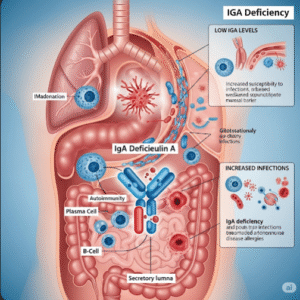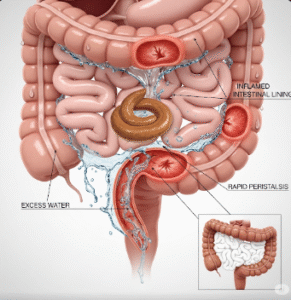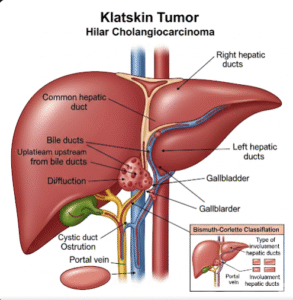Korea’s pediatric hospitals are entering a new phase in child-centered medicine — one that extends beyond treating illness to supporting the entire family’s well-being. Across the country, medical centers are introducing family support units, designed to give parents, caregivers, and young patients the emotional, logistical, and educational help they need during treatment.
These new hospital initiatives reflect a growing belief among Korean healthcare leaders: when families are supported, children heal faster, feel safer, and recover more completely.
1. The Changing Face of Pediatric Care in Korea
Traditional hospital systems have long focused on direct medical treatment, but Korea’s pediatric specialists are increasingly embracing family-centered care. As more children are treated for chronic conditions or undergo long hospital stays, the impact on parents and siblings is gaining attention.
Hospitals have realized that parents often carry heavy emotional and financial burdens — juggling work, caregiving, and constant worry. Family support units are being developed to offer them the resources they need to cope and to participate actively in their child’s recovery.
2. What Are Family Support Units?
Family support units are special hospital departments or teams that focus on the non-medical needs of pediatric patients and their families. They bring together doctors, nurses, psychologists, dietitians, and social workers to create a comprehensive support system.
Key services include:
• Counseling for parents and siblings to reduce emotional stress.
• Child life programs — therapeutic play, art, and music to help children express emotions.
• Family education sessions about nutrition, medication management, and recovery routines.
• On-site accommodation for parents staying with hospitalized children.
• Peer support groups and parent mentoring.
• Translation and administrative help for foreign or non-local families.
These units aim to make hospitals a more comforting, human-centered environment for families in difficult situations.
3. Hospitals Leading the Way
Several of Korea’s major pediatric centers have already begun integrating family support systems into their care models.
• Seoul National University Children’s Hospital operates programs that go beyond medical care, such as a Children’s Hospital School for long-term inpatients and their families. The hospital also organizes family camps and counseling workshops to help parents stay emotionally resilient during treatment.
• Asan Medical Center Children’s Hospital provides specialized family counseling and play therapy spaces, ensuring children feel less isolated during treatment.
• Regional children’s hospitals in Busan, Gwangju, and Daegu are also exploring partnerships with local community organizations to offer parenting education, sibling support programs, and volunteer-based family activities.
This trend is not limited to big cities — smaller hospitals are beginning to recognize the need for holistic care that includes the whole family, not just the child.
4. Why Family Support Is Essential
Korean doctors and psychologists emphasize that treating a sick child involves more than physical healing. The emotional stability of both child and parent is critical for recovery.
Benefits of family support programs:
• Children experience less anxiety and recover faster when parents are calm and informed.
• Parents gain confidence in caring for their child after discharge.
• Families build stronger emotional bonds through shared understanding and cooperation.
• Hospitals see fewer treatment dropouts and higher satisfaction rates.
By prioritizing the well-being of the entire family, these programs also help reduce long-term psychological trauma often associated with serious childhood illnesses.
5. Services Designed for Comfort and Education
The new family support units are not just administrative offices — they include dedicated spaces within hospitals for comfort and learning.
Common features include:
• Family lounges for rest and relaxation during long hospital visits.
• Parent classrooms where medical staff teach about child nutrition, medication, and hygiene.
• Playrooms for siblings who visit the hospital regularly.
• Counseling centers offering one-on-one and group therapy.
• Digital kiosks providing access to health education materials in multiple languages.
These additions make hospitals feel less clinical and more like community centers for healing and support.
6. Addressing the Emotional Side of Pediatric Care
Many parents face feelings of guilt, anxiety, and exhaustion when their child is ill. Family support teams work to help them manage these emotions through psychological counseling and peer sharing.
For children, art therapy, storytelling, and play-based counseling sessions help reduce fear of medical procedures and hospital environments. Some hospitals even organize “graduation ceremonies” for children who complete long-term treatments, helping families celebrate recovery and closure.
7. Support for International Families
With the growth of Korea’s medical tourism and expat communities, hospitals are also adapting family support programs for non-Korean families. Translation services, cultural orientation, and bilingual counseling help international patients navigate the system more easily.
Hospitals in Seoul, Incheon, and Busan have multilingual staff in their pediatric units, ensuring every family — regardless of background — receives compassionate and clear communication throughout treatment.
8. Government and Community Involvement
The Korean government is encouraging hospitals to adopt more family-centered care models through national health initiatives. Local governments and NGOs are also offering grants to hospitals that launch programs supporting caregivers, especially for low-income families.
Community volunteers and corporate sponsors contribute by funding playrooms, educational kits, and respite care spaces. This growing collaboration between public and private sectors ensures that family support services reach more hospitals nationwide.
9. The Future of Family Support in Korean Pediatrics
Experts predict that within the next few years, family support units will become a standard feature in most pediatric hospitals across Korea. As patient care becomes more holistic, medical facilities are reimagining their roles — not only as treatment centers but as safe spaces for families to heal together.
Future developments may include:
• Integration of mental health programs for parents.
• AI-based tracking systems that alert staff to family stress indicators.
• Tele-support for families managing care at home after discharge.
• Family wellness workshops combining nutrition, psychology, and physical activity.
This vision aligns with Korea’s broader goal of providing compassionate, family-driven healthcare that strengthens both physical and emotional recovery.
Final Thoughts
The creation of family support units in Korean pediatric hospitals marks a significant step toward humanizing medical care. By giving parents the tools, education, and comfort they need, hospitals empower families to become active partners in their child’s healing journey.













